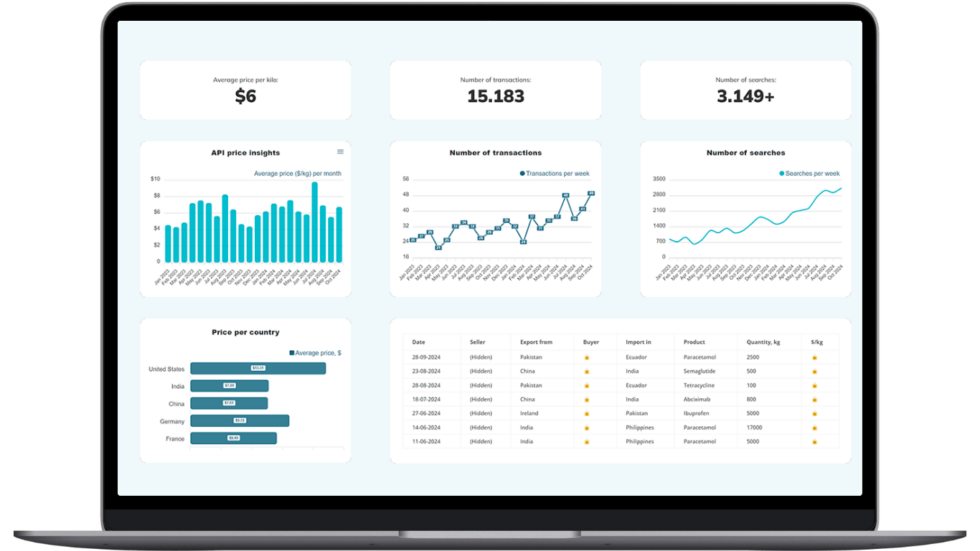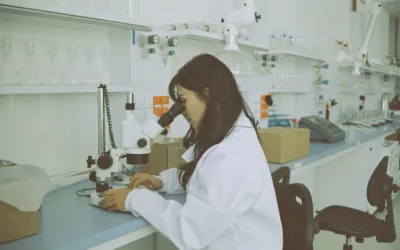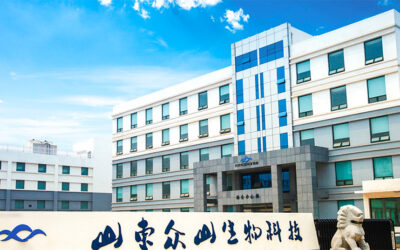
David Blok| Posted on May 27, 2023
What is cold-chain? And why is this so important for safe medicines?
The field of pharmaceuticals has witnessed remarkable advancements over the years, enabling the development of life-saving drugs and vaccines. However, many of these products, particularly biologics and certain medications, require specific temperature-controlled conditions to maintain their efficacy and safety. This is where the concept of cold-chain pharmaceutical products comes into play.
In this blog post, we will explore the intricacies of cold-chain logistics, the significance of temperature control, and the challenges involved. So let’s dive in and uncover the fascinating world of cold-chain pharmaceutical products.
Understanding Cold-Chain Pharmaceuticals
Cold-chain pharmaceutical products refer to drugs, APIs, vaccines, and biological substances that must be stored and transported within a specific temperature range to preserve their quality, potency, and safety.
These products are highly sensitive to temperature fluctuations, and any deviation from the recommended range can render them ineffective or even harmful. The cold chain encompasses the entire process, starting from manufacturing, storage, transportation, distribution, and finally reaching the end-user.
Importance of Temparature Control
Maintaining temperature control is crucial for cold-chain pharmaceutical products due to the following reasons:
a. Product Integrity: Temperature fluctuations can degrade the quality and efficacy of pharmaceuticals, rendering them ineffective or potentially dangerous to patients.
b. Patient Safety: Cold-chain products often include vaccines and biologics that are used to prevent or treat life-threatening diseases. Failure to maintain the required temperature can compromise their effectiveness, putting patients’ lives at risk.
c. Regulatory Compliance: Regulatory bodies, such as the Food and Drug Administration (FDA), impose strict guidelines on temperature control for cold-chain pharmaceuticals. Compliance with these regulations is essential for market approval and ensuring patient safety.
Challenges in Cold-Chain Management
Managing cold-chain pharmaceutical products poses several unique challenges:
a. Temperature Monitoring: Continuous temperature monitoring is necessary throughout the supply chain to identify and address any deviations promptly. Advanced monitoring systems, such as temperature data loggers and IoT-enabled devices, help ensure real-time tracking and provide alerts in case of temperature excursions.
b. Infrastructure and Equipment: Adequate storage facilities, refrigeration units, and transportation equipment are essential to maintain the desired temperature range. These facilities must be properly validated and equipped with backup power sources to avoid disruptions during power outages.
c. Transportation Risks: Shipping pharmaceutical products globally involves navigating various environmental conditions, including extreme temperatures during transit. Effective packaging, insulation, and cold-chain logistics strategies are crucial to mitigate transportation risks and ensure product integrity.
d. Regulatory Compliance: Compliance with regulatory requirements, such as Good Distribution Practices (GDP) and Good Manufacturing Practices (GMP), is vital for pharmaceutical manufacturers, distributors, and logistics providers. Failure to comply can lead to regulatory penalties, product recalls, and damage to a company’s reputation.
Innovations in Cold-Chain Management
To address the challenges in cold-chain pharmaceutical management, the industry is adopting innovative solutions:
a. Temperature-Controlled Packaging: Advanced packaging materials, including insulated containers, gel packs, and phase change materials, help maintain the required temperature during transportation.
b. Real-Time Monitoring: IoT-enabled temperature monitoring devices offer real-time data on temperature, humidity, and location, enabling proactive interventions to prevent temperature excursions.
c. Blockchain Technology: The use of blockchain in the cold chain helps improve traceability, transparency, and accountability. It allows stakeholders to securely record and track every transaction and temperature-related data, ensuring the integrity of the entire supply chain.
d. Drone Delivery: In remote or hard-to-reach areas, drone delivery systems are being explored as a potential solution for transporting cold-chain pharmaceuticals swiftly and efficiently.
Conclusion
The cold-chain management of pharmaceutical products plays a vital role in maintaining the quality, efficacy, and safety of temperature-sensitive drugs, vaccines, and biologics. The complexities involved in preserving the integrity of these products require a holistic approach, encompassing advanced technologies, robust infrastructure, and stringent regulatory compliance. As the industry continues to evolve, innovative solutions and collaborative efforts will shape the future of cold-chain logistics, ensuring that patients receive the most effective and reliable pharmaceutical products possible.
By understanding the significance of temperature control, embracing technological advancements, and prioritizing patient safety, the pharmaceutical industry can navigate the intricate cold-chain landscape and pave the way for a healthier future.
FAQ
What Does "Cold-Chain" Mean in the Pharmaceutical Industry?
In the pharmaceutical industry, cold-chain refers to the process of storing and transporting drugs, vaccines, APIs, and biological substances within a specific temperature range to maintain their quality, potency, and safety.
Why is Temperature Control Important for Cold-Chain Pharmaceuticals?
Temperature control is essential to maintain the integrity of pharmaceutical products, ensure patient safety, and comply with regulatory guidelines. Any deviation from the recommended temperature can render the products ineffective or harmful.
What is the Significance of Regulatory Compliance in Cold-Chain Management?
Regulatory bodies like the FDA have stringent guidelines on temperature control for cold-chain pharmaceuticals. Non-compliance can result in penalties, product recalls, and damage to a company’s reputation.
How Do Advanced Monitoring Systems Help in Cold-Chain Management?
Advanced systems like temperature data loggers and IoT-enabled devices provide real-time tracking and alerts for temperature excursions, enabling proactive interventions to maintain product integrity.
How Does Cold-Chain Impact Patient Safety?
Failure to maintain the required temperature in cold-chain can compromise the effectiveness of vaccines and biologics, thereby putting patients’ lives at risk.

Make Smarter API Decisions with Data
Access exclusive insights on global API pricing, export/import transactions, competitor activities and market intelligence.






Check out all other blogs here!